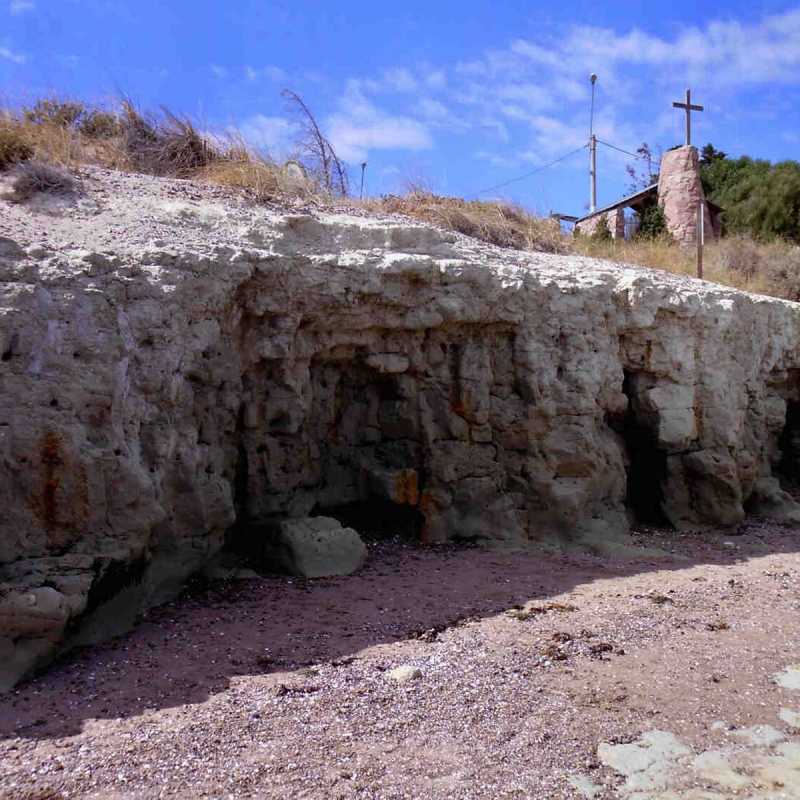World
Spring in Patagonia: Celebrating the Welsh Legacy

Spring has arrived in Patagonia, Argentina, and with it comes the blooming of daffodils, a beautiful reminder of the region’s Welsh roots. Back in 1865, a group of 153 brave settlers arrived on the east coast of southern Argentina, and their cultural legacy still lives on today. As the weather gets warmer, more and more backpackers and tourists make their way to Patagonia, eager to immerse themselves in the rich Welsh heritage found in the small communities spread across the region.
Travelers often visit the Welsh tearooms and chapels in Gaiman, and explore the areas of Trelew and Puerto Madryn, where the settlers first landed, to catch a glimpse of penguins and whales. However, this Saturday, many visitors will be invited to a different kind of event – watching the Rugby World Cup match between Wales and Argentina.
In Trelew, the Asociación San David will open its doors to hundreds of people, offering a cinema screen for families to gather and enjoy the quarter-final game. Meanwhile, in Trevelin, one of the three Welsh-Spanish bilingual schools in the region, a large event will take place at Ysgol y Cwm. Students have even built a giant Welsh dragon to enhance the atmosphere, and traditional Welsh cakes and teisen ddu will be served along with tea.
Clare Vaughan, the coordinator of the British Council’s Welsh language project in the region, is excited about the community coming together for the match. Having moved to Patagonia from Abermorddu in Wales 18 years ago, she has seen the impact of the Welsh language project firsthand. The project was established in 1997 to combat the decline of the Welsh language in the 20th century.
Learning Welsh in Patagonia holds a different meaning compared to Wales, according to Vaughan. In Patagonia, it is more emotional and about connecting with one’s roots, rather than for practical purposes. Vaughan met her Argentinian husband, Victor, and stayed in Patagonia, becoming the coordinator for the project. Today, there are over 6,000 Welsh speakers in the region.
One of the notable achievements of the language project is the annual youth Eisteddfod, a competition and festival celebrating Welsh culture, held in Gaiman. This year’s event showcased a remarkable number of participants, including recitation classes with 35-40 entries each. Vaughan has witnessed the growth and success of the Eisteddfod since her arrival in 2005, and she is amazed by what has been accomplished.
In two weeks, the main Chubut Eisteddfod will take place in Trelew during the Rugby World Cup final weekend. Adults, including Vaughan, will compete alongside hundreds of participants from the province and 100 visitors from Wales.
As the Wales vs. Argentina match approaches, there remains some division between the Welsh- and Spanish-speaking communities. Tomos Luque, a rugby player from Esquel, exemplifies this sentiment as he reflects on his Welsh heritage and Argentinian identity. Luque believes that the Pumas of Argentina will prevail over the Welsh Dragon, and while he supports the Pumas, he will cheer for them in Welsh. However, he admits that if the match were between Wales and England, his allegiances would be different.
As the people of Patagonia eagerly await the Rugby World Cup match, they find joy in celebrating their Welsh legacy. Win or lose, the match will bring the community together, reinforcing the deep cultural ties between Patagonia and Wales.












